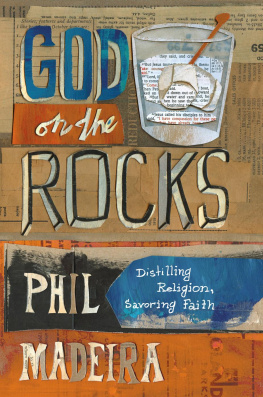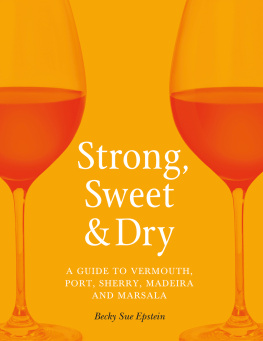I am the baby who tumbled from the womb drumming. I am the boy whose fingers tapped out a tattoo on a maple-topped desk in elementary school. I am the teenager who split the calfskin head of an old Ludwig drum as my blue-and-gold-clad fellows marched ahead, laden down with cumbersome brass tubas and silver cornets.
Be it a Sunday school class or a marching band, a book group or an English Lit class, Ive never been swept along with the herd. I might be singing along to whatever melody is being raised by the chorus, but the tempo in my head is always fighting with the cadence of the footfalls of the communal parade.
The rhythm in my head is upbeat and funky. The snare drum barks with brassy insistence and the bass drum holds it all together, landing solidly on the beat, while a maraca trips erratically overhead, riding on the wind.
And the beat goes on.
Those who love me have sometimes felt the need to explain or excuse me. My childhood shenanigans would often elicit an exclamation of Where did you come from? from my bemused father. Exasperated, my mother would plead with me to get in line with dress codes, mores, or whatever parental vision I was supposed to be fulfilling.
Its no wonder that Im marching to my own beat. My parents set me up.
While I was incubating in my mothers tummy, she was playing Mahalia Jackson records, feeding my soul the music of a world that was vastly different from white -bread New England. The gift of my mothers beloved black gospel music was the sirens call, the sound that lured my vessel away from the staid New England harbor only to joyously capsize me on the jagged edges of rock n roll.
When she preached on Mothers Day, it was to a congregation who wasnt sure what to do with the idea of a woman having that kind of authority. She was more progressive than she knew. She didnt know she was a rebel; but sometimes taking the words of Jesus at face value can start a revolution.
My father, a mans man if I ever knew one, was somewhat of a pacifist, bringing yet another strange facet into an otherwise dog-eat-dog world. He presided over the Rhode Island chapter of Habitat for Humanity, and he created a relief society to benefit destitute people in Haiti.
Dad was a minister in a Baptist church, known more for what they dont do than for what they get done. Yet, unlike many Baptists, he preached less about Hell than of the Churchs responsibility to the poor. He ruffled the feathers of his flock when he preached against the war in Vietnam, and when he championed men like Martin Luther King, Jr.
My parents literal interpretation of the words of Christ made them who they were. They took faith seriously, and thus set themselves apart from the self-centered suburbia they lived in. They were truly in the world, but not of the world.
My parents were proudly Evangelical, espousing a holistic gospel both theologically pronounced and practiced.
There were many churches in waspy Barrington, the upper-class town we lived in. Although Rhode Island was founded by the first Baptist, Roger Williams, being Baptist carried with it a hillbilly stigma among the bluebloods of New England. The social climbers attended St. Johns Episcopal or the White Church, an aptly named Congregational group on the banks of the Barrington River.
There were two Catholic churches, one Methodist, another less-well-heeled Episcopal parish, and a synagogue just to round things out.
My parents would answer my questions about what the other churches believed with phrases that caused me to think that we at Barrington Baptist had quite a bit more truth than the rest of the towns Christians. Well, they dont really know the Lord the way we do was the gist of it. It was always something of a surprise for me to find out that an Episcopalian or a Congregationalist could be a real Christian.
In their quest to espouse a religion that matched up with who they believed Jesus to be, they were more exclusive than they may have realized. That is the difficulty with most denominations.
My life was designed by my parents to revolve around church events several days a week. Sunday was filled with Sunday school class, morning worship, afternoon youth group, and evening worship. There was also Wednesday evening prayer meeting, which I was thankful that we were not required to attend, and Friday night youth activities in the church gymnasium.
By the time I was eighteen years old, I had done enough church-going to fill the average lifetime.
When I left the warmth of my parents home for my freshman year of college, I sought out other Christians like them, but there were none that I could find. At Taylor University, I recognized the religious jargon, and found some comfort in being with real Christians, but there was something missing.
I attended chapel services and occasionally went to one church or another on Sunday, but sleeping in seemed a more constructive option. I let myself off the hook based on my behavior and time served. I still do.
Over the years, the search for Gods presence led me in and out of a variety of traditions, from incense burners to barn burners, liturgists to improvisers. In contrast to conventional church wisdom, the more active I became in one group or another, the less connected to Christ I felt.
What my parents loved to experience with many, I cherish with one or two people, and more so under the low lighting of a bar than the brightly lit chandeliers of a church sanctuary.
Trying to remain a good parent to the end, my nonagenarian mother still sends me books by prominent Evangelical authors. Im in good company, mind you; she sends devotional books to the president of the United States! Once, after reading something Barack Obama had said about his spiritual life, Mom told me that she was quite sure he had read the book shed sent him. If thats the case, hes one up on me.
Unfortunately, what was once meaningful jargon now falls flat when it hits my ears. I cant read these books. Its hard enough for me to read the Bible, so familiar is it to me. But the language of Evangelicalism seems like a pair of loaded dice; I know exactly where the roll will take me. I need something fresh.
Surprise me, God.
Once I tried to explain to my mother that I was grateful for my upbringing in the household of faith, but no longer felt comfortable defining myself as Evangelical. She voiced her disappointment by projecting it through my father, long deceased, saying, Yah fathuh would be mighty disappointed in you. He was proud to be Evangelical.
Ah, yes, Mom will always play the Dad card. But it never works; it stings for a moment, but its never a surprise. Its a Band-Aid being pulled off, nothing more. Dad never worried about the drumbeat I was following. Mom feels bad that Im not in the club anymore no matter how much I explain that I am still trying to follow Christ.
What I dont say, but perhaps she understands, is that I cant seem to find Jesus in that world that loudly proclaims him. The fever pitch of the crowd makes it hard for me to hear what the Old Testament calls the still, small voice. The rants of the church are about hanging on to theological and social real estate, while the whisper of the Spirit is Let go.
Im doing my best to let go, by God.
I try to give my mother some comfort in the idea that she is largely responsible for my exit from Evangelical World; after all, she never let the word Baptist define her parameters, never caved to the status quo when it would have been convenient. She was a pastors wife who didnt limit herself to playing the piano on Sunday mornings. The open-minded attitude she had as a young woman probably had more influence on my fathers ministry than anything else. They were a team, trying to live out the words of Christ.










